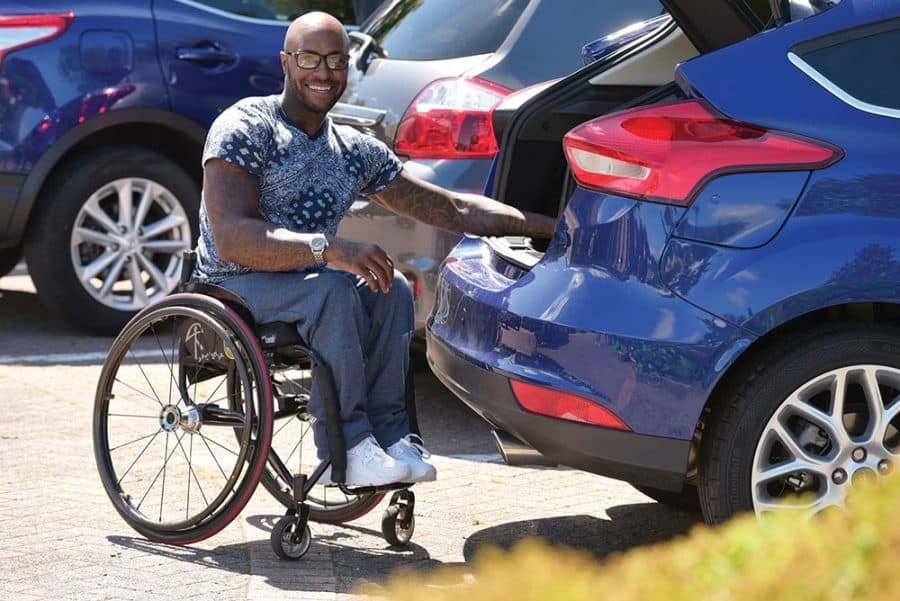Motability Operations investing £300m on more affordable and accessible electric vehicles

Addressing an audience of senior industry leaders and government representatives at the British Vehicle Rental & Leasing Association’s (BVLRA) Fleets in Charge conference last Thursday, Miller highlighted the company’s investment and innovation to transition the UK’s largest fleet to electric as it tackles the challenges of accessibility, availability and affordability.
Motability Operations is the commercial company that runs the Motability Scheme, leasing cars, powered wheelchairs and scooters to help disabled people and their families access independent mobility.
As the government’s ban on the sale of all new petrol and diesel cars approaches, Miller spoke about how Motability Operations had already moved more than 34,000 people into EVs and currently buys more than seven per cent of all new electric vehicles in the UK, but explained there was so much more to do to. He described how the organisation’s unique customer base gives crucial insight:
“Over our entire customer base, not just those in EVs, nearly half live on less than £20,000 a year, and only about half have off-street parking,” said Miller.
“When we asked our customers recently, 57 per cent gave the lack of public charge points as a reason for not switching to electric, and of those 34,000 who are in EVs already, nine out of ten said their experience of charging publicly was poor.”
Miller explained how this insight should be used to ensure a truly inclusive transition that leaves no one behind, and how the company is focussed on helping its customers overcome barriers.

Outlining how the company’s operating model works, reinvesting every penny of profit back into the scheme, Miller revealed that £300m had been set aside “to make EVs more affordable and accessible … we’ve currently spent close to half of this with more to come.” He also outlined over £13m of investment in installing more than 25,000 home chargers for customers.
But the game changer for Miller and for all of the Motability Scheme’s 700,000 customers, is public charging. Earlier this month, Osprey Charging was selected by Motability Operations as its first charge point operator (CPO) partner.
Challenges such as charging points at unsuitable heights for wheelchair users, heavy charging cables, lack of space to park and the height of kerbs all put barriers in the way. Range anxiety is a real concern and it’s made even more so when public infrastructure isn’t accessible.
Miller talked about the innovative pilots the company is running, such as an app that collects real time, user generated reviews of public chargers, and a card that consolidates different providers and payment methods. Another pilot is taking place as part of Europe’s biggest trial of vehicle-to-home technology that uses a car’s battery to power a home, or sells energy back to the grid. “Our job is to find solutions,” said Miller.
Wrapping up his speech, Miller touched on the 33,000 disabled people who rely on wheelchair accessible vehicles (WAVs) and for whom there is currently no electric design solution. Motability Operations is working with industry to solve the issue, as Miller explained, “it is too important to get wrong.”
“We are acutely aware of our responsibility with the life-changing Motability Scheme and the need to ensure its protection and sustainability for generations to come,” Miller concluded. “The switch to EVs is probably the most significant shift we’ve ever seen.
“Almost everyone will temporarily or permanently experience disability at some point in their life. Everyone will benefit from keeping accessibility at the heart of the EV transition.”


